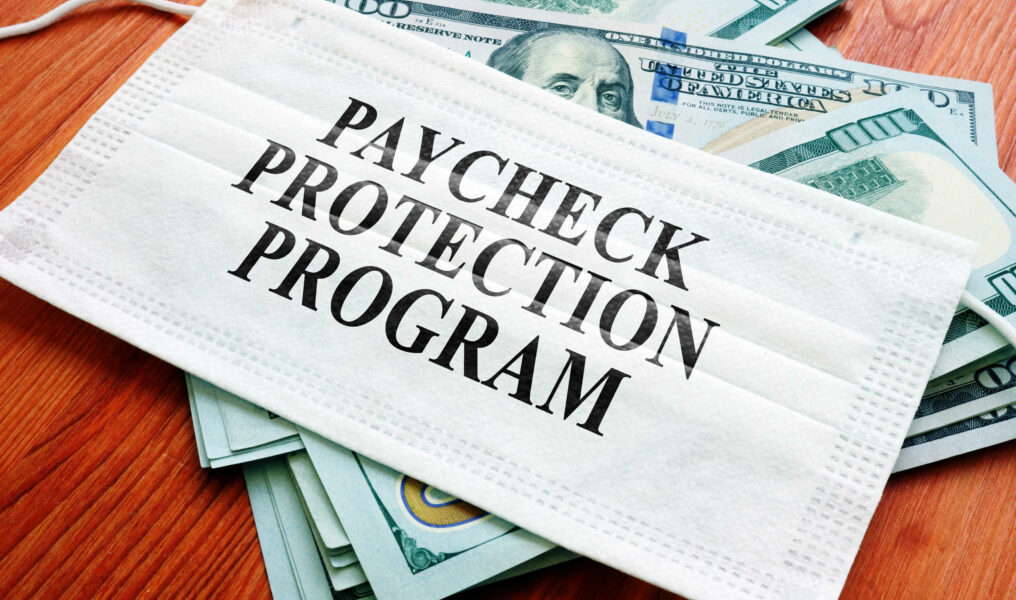Millions in Loans
Seven hate groups with explicitly anti-LGBTQ ideologies were awarded nearly $2.5 million combined in Paycheck Protection Program loans, according to Dec. 9 and Dec. 12 analyses by NBC News. Established by the CARES Act, PPP are potentially forgivable Small Business Administration loans designed to help businesses keep their workforce employed during the novel coronavirus pandemic.
The anti-LGBTQ groups in question include Ferndale-based Church Militant, known locally for trolling a lesbian-owned bakery in Detroit and for promoting conversion therapy, was awarded $300,100; the American Family Association, which seeks to combat "the homosexual agenda" was awarded nearly $1.4 million; and the Liberty Counsel, known for its anti-LGBTQ advocacy, which lobbied for making the pandemic relief funds available regardless of a nonprofit's mission, was awarded $428,100.
Rounding out the list of anti-LGBTQ groups receiving assistance is the American College of Pediatricians, an anti-trans advocacy group of health care providers; Center for Family and Human Rights; Pacific Justice Institute; and Ruth Institute, whose curious mission is "inspiring the survivors of the sexual revolution." Also noteworthy is the finding that one of the Michigan-based for-profit companies receiving PPP funds was R.G. and G.R. Funeral Homes, whose former employee, Aimee Stephens, was fired upon coming out as transgender.
"It's unfortunate that in the midst of a global pandemic which has disproportionately affected so many members of the LGBTQ+ community, far-right hate groups have benefitted from scarce resources such as the PPP loan fund to promote harmful beliefs and fund hateful activities," said Erin Knott, executive director of Equality Michigan.
"Far too many small businesses and nonprofits across Michigan have been left out of the opportunity to borrow PPP loan funds and are still struggling to deliver services, make payroll and keep their doors open," she continued. "Groups such as the American Family Association and Church Militant should not have been eligible to receive governmental relief funds to advocate their missions of opposing LGBTQ+ rights."
For the purposes of this article, hate group status is determined by the Southern Poverty Law Center and the Anti-Defamation League. It is defined as an organization whose work and advocacy focuses on attacking, maligning and delegitimizing entire classes of people based on their ethnicity, religion, gender, sexual orientation or if they have a disability.
Knott said it's especially disheartening that funds are going to groups such as Church Militant, which advocates for "junk science" programs like conversion therapy. Widely discredited, conversion therapy can have harmful long-term effects or even lead to suicide among affected LGBTQ people, youth in particular.
Following the Rules
When questioned by NBC, a spokesperson from SBA issued the following statement:
"SBA takes seriously its stewardship of taxpayer dollars and has designed a robust loan review process to ensure that only eligible borrowers received loans that fully complied with program requirements."
Between The Lines spoke with a local CPA who assisted clients in the PPP application process. He requested anonymity because his firm strives to remain publicly neutral.
"Because of my job, I am not against it," the CPA said, referring to certain groups receiving funds. "Only because when they first opened it up to all nonprofits — all 501(C)(3)s — they could not discriminate as far as who gets the money. Am I in favor of it? No, I'm not. I'm not in favor of any hate group getting something, but as far as what the law says, I think it's legitimate.
"It all comes down to the government," he continued. "They did not discriminate. When this first started, nonprofits were not part of this PPP. And then all of a sudden they were added on."
Equality Michigan is one such nonprofit that received a PPP loan. Knott thinks the federal government could have done a better job administering the funds.
"I filled out an application and those questions [about mission, etc.] did not exist," Knott said. "It was about your need, your financial statement. But there was nothing related to our program or services in the application that we completed, and I think that that's a lesson learned moving forward, particularly for these governmental relief programs."
By the Numbers
The Paycheck Protection Program gave nearly $5.3 billion in potentially forgivable loans to 5,160,000 recipients, with the average loan being $101,409. Overall, 3.5% of those funds went to 501(C)(3) nonprofits, which includes religious institutions. The first round of COVID-19 relief funding ended in August. At present, negotiations for new funding have stalled.
For some comparison, nearly 130,000 Michigan entities received PPP loans. Examples of larger amounts distributed to area nonprofits include United Way for Southeastern Michigan, awarded $2.47million; Planned Parenthood of Michigan, $2.36 million; Matrix Human Services, $3.82 million; and the Archdiocese of Detroit, $2.83 million.
NBC's findings described above were released by the SBA after being sued to do so by NBC and other newsrooms. Detailed information is also available in a searchable database compiled by government watchdog Accountable.us. A quick search reveals that Church Militant, also known as St. Michael's Media, received its loan on April 8 with Level One Bank as their lending institution.
Knott concluded by emphasizing how unfortunate it is that these funds "went to organizations who aren't providing housing, they're not providing small forgivable loans for small businesses or ways in which to positively impact all the economic harm that's happening across Michigan."
"Instead, they went to spreading hate and activities that directly cause harm and damage to our community," Knott said.










